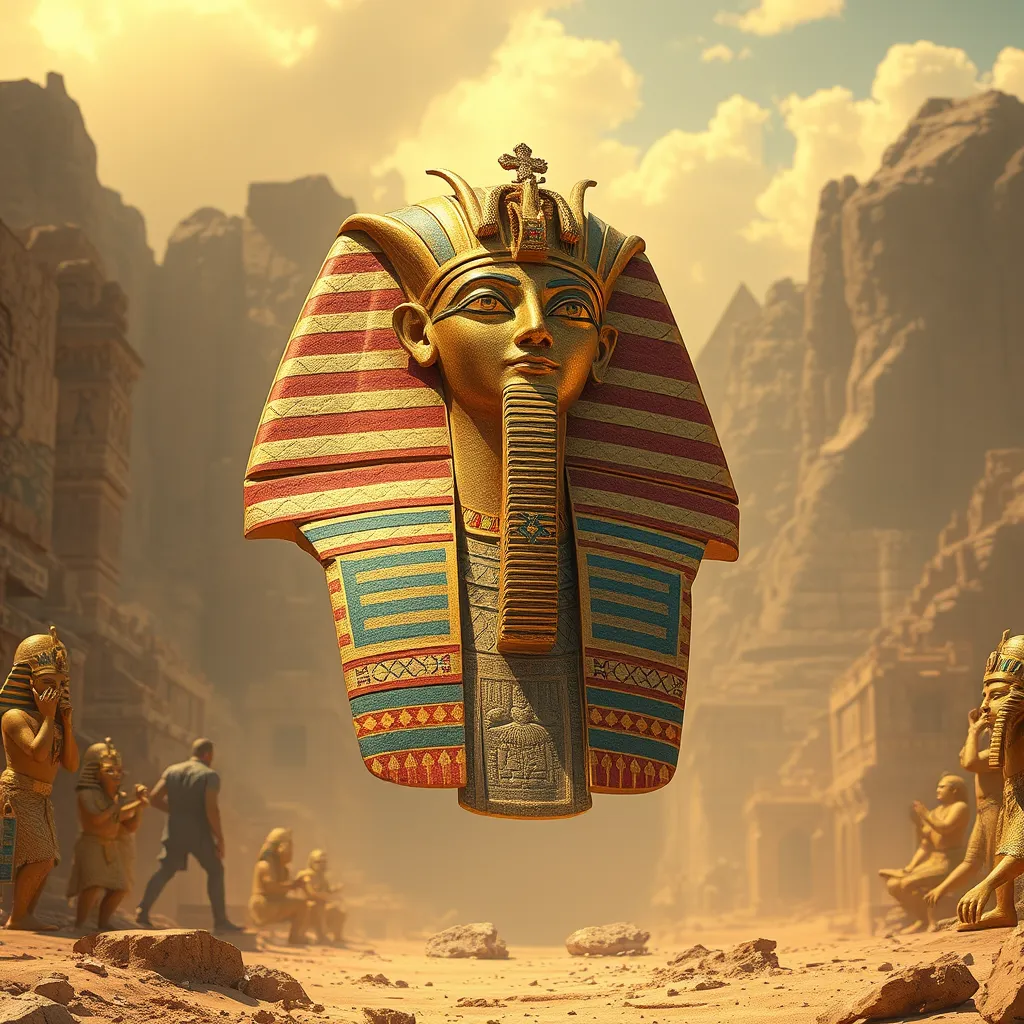Egyptian Mythology: From Myths to Movies
I. Introduction
Egyptian mythology is a rich tapestry of ancient beliefs, stories, and deities that have shaped the culture and history of Egypt for millennia. The significance of these myths extends beyond their historical context, influencing not only the spiritual lives of the ancient Egyptians but also the narratives of modern storytelling.
From literature to cinema, the themes and characters of Egyptian mythology continue to resonate, providing a wellspring of inspiration for contemporary creators. The purpose of this article is to explore the transition of these ancient myths into cinematic representations, examining how they have evolved and been interpreted in modern film.
II. The Pantheon of Egyptian Gods and Goddesses
At the heart of Egyptian mythology lies a complex pantheon of gods and goddesses, each embodying different aspects of life, nature, and the cosmos. Some of the key deities include:
- Ra: The sun god, often depicted with a falcon head, symbolizing light and creation.
- Osiris: The god of the afterlife, resurrection, and agriculture, often portrayed as a mummified figure.
- Isis: The goddess of motherhood and magic, revered as the protector of the pharaoh.
- Anubis: The god associated with mummification and the afterlife, depicted as a jackal or a man with a jackal head.
These deities played critical roles in ancient Egyptian culture, embodying themes of creation, death, and the afterlife. The myths surrounding them provided explanations for natural phenomena, moral lessons, and insights into human existence.
III. Major Myths and Their Cultural Impact
Several major myths have emerged from Egyptian mythology, each offering profound insights into the beliefs of ancient Egyptians:
- The Osiris myth: This myth centers on the death and resurrection of Osiris, symbolizing the cycle of life and death. It highlights the theme of resurrection and the hope for eternal life.
- The story of Ra: Ra’s daily journey through the underworld illustrates the battle between light and darkness, emphasizing the importance of the sun in sustaining life.
- The significance of the afterlife: The Book of the Dead serves as a guide for the deceased, containing spells and prayers to help navigate the afterlife. This reflects the Egyptians’ deep belief in life after death.
These myths not only shaped religious practices but also influenced art, literature, and even social norms in ancient Egypt, emphasizing the importance of morality, order, and the afterlife.
IV. The Evolution of Egyptian Mythology in Literature
The transition of Egyptian mythology into literature has been a gradual process, with early adaptations laying the groundwork for future interpretations:
- Early literary adaptations: Ancient texts, such as the Pyramid Texts and the Coffin Texts, documented various myths and religious practices.
- Influence on classical literature: Greek historians and poets like Herodotus and Homer incorporated Egyptian themes into their works, blending mythology with their narratives.
- Key authors and works: Modern authors like H. Rider Haggard and Naguib Mahfouz have drawn inspiration from Egyptian mythology, exploring its themes in novels that resonate with contemporary audiences.
This evolution demonstrates how ancient stories have been reinterpreted across cultures and eras, continually finding new relevance in different contexts.
V. Egyptian Mythology in Film: An Overview
The cinematic adaptation of Egyptian mythology has brought these ancient tales to life on the silver screen, captivating audiences worldwide. Some key films inspired by Egyptian myths include:
- The Ten Commandments: This classic film depicts the biblical story of Moses, intertwining elements of Egyptian culture and mythology.
- The Mummy: A modern adventure film that combines horror and fantasy, drawing upon the mythos of ancient Egypt.
- Gods of Egypt: A fantasy film that reimagines Egyptian gods and their interactions with humans in a visually stunning narrative.
These films interpret and visualize ancient myths, often blending historical elements with creative storytelling to engage contemporary audiences.
VI. Themes and Symbolism in Film Adaptations
Common themes found in films inspired by Egyptian mythology include:
- Power: Many films explore the dynamics of power among the gods and their influence over humans.
- Immortality: The quest for eternal life and the consequences of seeking immortality are central themes in several adaptations.
- Morality: The moral dilemmas faced by characters often reflect the ethical teachings found in ancient myths.
Symbolism plays a crucial role in these adaptations, with gods and their attributes serving as metaphors for broader human experiences. The balance between historical accuracy and creative license allows filmmakers to craft compelling narratives while paying homage to the original myths.
VII. Reception and Critique of Egyptian Mythology in Movies
The reception of mythological adaptations in film has been varied:
- Audience response: Films based on Egyptian mythology often attract significant attention, drawing in audiences fascinated by ancient cultures.
- Criticism regarding cultural representation: Some adaptations have faced backlash for misrepresenting Egyptian culture or perpetuating stereotypes, highlighting the need for more authentic portrayals.
- The impact of modern filmmaking techniques: Advances in CGI and visual effects have enabled filmmakers to create stunning representations of ancient Egypt, enhancing the cinematic experience.
These critiques underscore the importance of sensitivity and accuracy in depicting ancient cultures in modern media.
VIII. Conclusion
The enduring legacy of Egyptian mythology continues to shape popular culture, inspiring countless stories across various mediums. The myths of ancient Egypt not only provide insight into the beliefs and values of a bygone civilization but also serve as a source of inspiration for contemporary creators.
Preserving these ancient stories is essential for understanding their cultural significance and ensuring that they resonate with future generations. As we look to the future, the representation of Egyptian myths in film and media will likely evolve, offering new interpretations and insights into this fascinating mythology.




